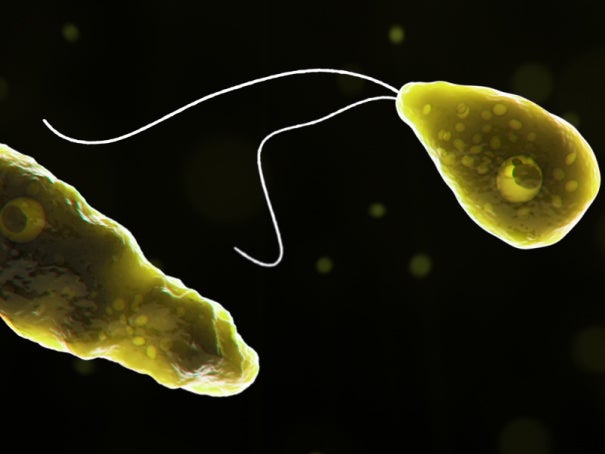Man killed by ‘brain-eating’ amoeba after swimming in lake
Naegleria fowleri is benign when swallowed but can be fatal if ingested nasally, made more likely by diving or water-skiing

Your support helps us to tell the story
From reproductive rights to climate change to Big Tech, The Independent is on the ground when the story is developing. Whether it's investigating the financials of Elon Musk's pro-Trump PAC or producing our latest documentary, 'The A Word', which shines a light on the American women fighting for reproductive rights, we know how important it is to parse out the facts from the messaging.
At such a critical moment in US history, we need reporters on the ground. Your donation allows us to keep sending journalists to speak to both sides of the story.
The Independent is trusted by Americans across the entire political spectrum. And unlike many other quality news outlets, we choose not to lock Americans out of our reporting and analysis with paywalls. We believe quality journalism should be available to everyone, paid for by those who can afford it.
Your support makes all the difference.A man in North Carolina died on Monday after he went swimming in a lake and was infected by Naegleria fowleri, a single-celled organism known as the “brain-eating amoeba”.
The man, Eddie Gray, 59, fell ill after he visited the Fantasy Lake Water Park in Cumberland County on 12 July, the North Carolina Department of Health and Human Services said in a statement on Thursday.
Naegleria fowleri infections are rare, but deadly.
There were 145 known infected people in the United States from 1962 through 2018, and all but four cases were fatal.
The amoeba is typically found in warm freshwater, and the majority of cases in the United States have occurred in Florida and Texas.
“Mr Gray’s death was tragic and untimely,” Justin Plummer, a lawyer representing his estate, said in a statement. “The family is currently asking for privacy and respect during this difficult time.”
According to his obituary, Mr Gray was an active member of the Sedge Garden United Methodist Church who enjoyed kayaking, camping, hunting, fishing and NASCAR.
“Our sympathies are with the family and loved ones,” Zack Moore, North Carolina’s state epidemiologist, said in a statement.
“People should be aware that this organism is present in warm freshwater lakes, rivers and hot springs across North Carolina, so be mindful as you swim or enjoy water sports.”
According to the North Carolina Health Department, Naegleria fowleri “does not cause illness if swallowed but can be fatal if forced up the nose, as can occur during diving, water-skiing or other water activities”.
Most of those affected have been children and adolescents, and more than three-quarters have been male, according to the US Centres for Disease Control and Prevention.
A couple of cases have also been linked to neti pots — vessels that are used to wash out the nasal passages.

Early signs of infection can include headache, nausea and vomiting. The illness progresses rapidly, making it hard to diagnose, and most people who are infected die within one to two weeks.
After Naegleria fowleri enters the body through the nose, it can migrate to the brain along the olfactory nerve. Then, it can begin to destroy brain tissue.
The technical name for the infection is primary amoebic meningoencephalitis.
To prevent infection, people swimming in warm freshwater should try to limit the amount of water that goes up their nose.
“Hold your nose shut, use nose clips or keep your head above water when taking part in warm freshwater-related activities,” the Health Department said in the statement.
It recommended that people avoid water activities when water levels are low and water temperatures are high, and that they refrain from stirring up sediment in shallow bodies of freshwater.
The department added that “there is no means to eliminate this amoeba from freshwater lakes”.
Fantasy Lake Water Park, which centres on a six-acre, man-made lake, did not immediately respond to a request for comment on Thursday evening.
But a swimming advisory on the park’s website cautions visitors that “there is a low level of Naegleria fowleri risk when entering any warm freshwater”.
New York Times
Join our commenting forum
Join thought-provoking conversations, follow other Independent readers and see their replies
Comments